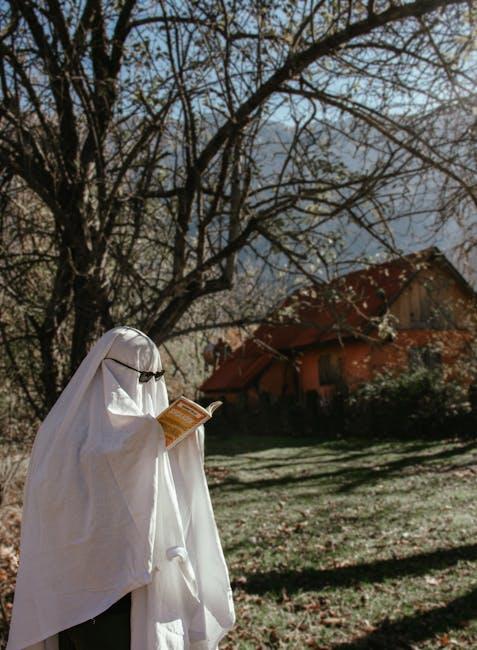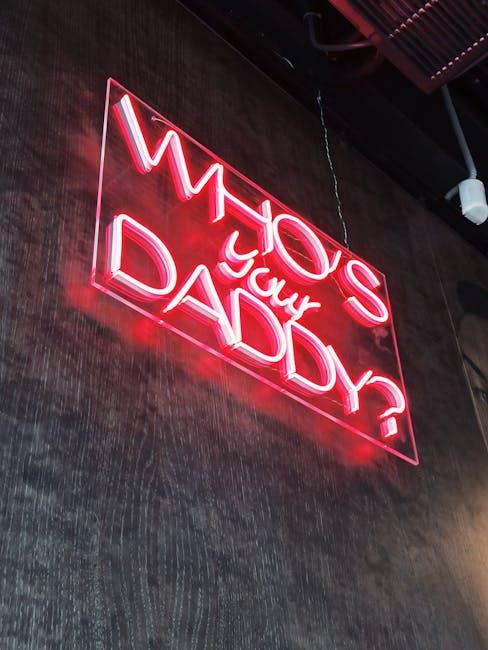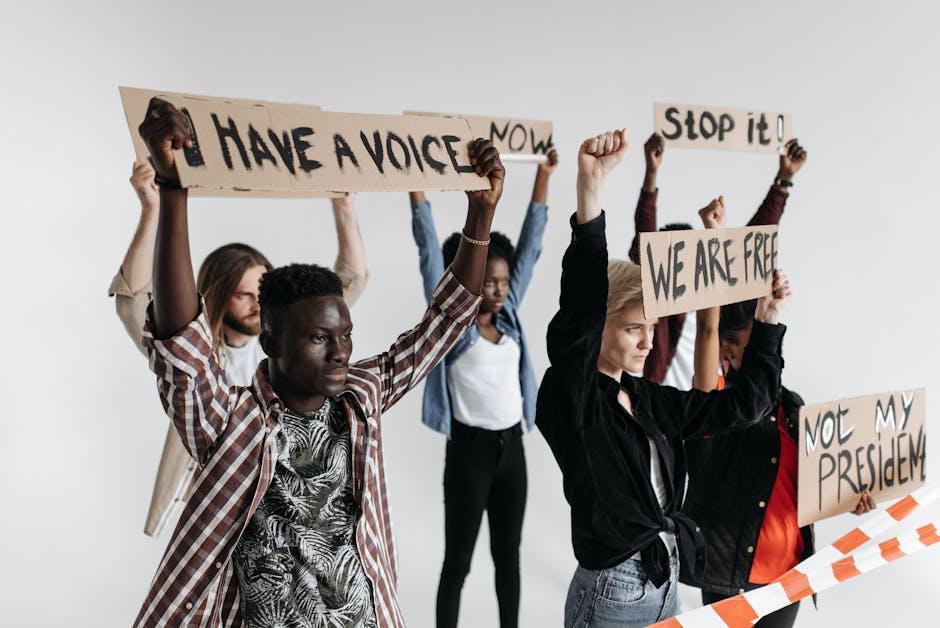Sure! Here’s an engaging introduction for your article about “”:
Hey there, comedy lovers! If you’ve ever found yourself chuckling at a stand-up special or binge-watching a sitcom that just hits your funny bone just right, you know that laughter has this incredible power to bring us together. But here’s a thought: is America’s comedy scene evolving beyond the stereotypes and racially charged jokes that once filled our screens and stages? With fresh voices emerging and a push for more inclusive humor, it feels like we’re in the middle of a comedy renaissance where more laughs could mean fewer racist punchlines. So, grab your favorite snack, cozy up, and let’s explore how today’s comedians are not just aiming for laughs but are also carving out a space for understanding, connection, and maybe even a bit of healing. Can comedy really help us bridge the gaps in our society? Spoiler alert: it just might!
—
Feel free to let me know if you have any other requests or need adjustments!
America’s Comedy Scene: A Reflection of Changing Perspectives

America’s comedy scene has evolved dramatically over the years, showcasing the shifting dynamics of our society. Many comics now aim to connect with their audiences on a deeper level, striving to find humor in shared experiences rather than relying on stereotypes or offensive punchlines. Think about it: when was the last time you heard a stand-up bit that centered on outdated racial tropes? Today’s comedians are often leveraging their unique backgrounds to tell stories that highlight resilience and shared humanity. They’re crafting sets that resonate because they evoke empathy rather than division, bringing laughter without leaving a bad taste in anyone’s mouth.
This shift isn’t just about avoiding problematic humor; it’s about embracing diversity in representation. Here are some ways this new wave of comedians is changing the game:
- Inclusivity: More comedians from varied backgrounds are taking the stage, ensuring that a wider range of stories and perspectives are represented.
- Authenticity: Audiences are drawn to comedians who share their real-life experiences, making their acts feel relatable and genuine.
- Empowerment: Comedy is becoming a platform for marginalized voices, tackling issues like race, sexuality, and identity in clever, insightful ways.
As a reflection of these changing perspectives, it’s heartening to see not just comedians, but audiences embracing this evolution. The laughter shared in a room full of diverse individuals can bridge gaps that have long divided people—turning comedy into a unifying force. This emerging landscape creates a rich tapestry of humor that emphasizes our shared humanity, allowing us to find joy in unexpected places. After all, who doesn’t appreciate a good laugh that brings us closer together?
Navigating Humor in 2023: Balancing Punchlines and Compassion

As comedians continue to find their footing in 2023, they face the unique challenge of creating humor that resonates without crossing into offensive territory. It’s a tightrope walk, where each punchline must be balanced with awareness and empathy. Think about it: comedy clubs are like a high-wire act, filled with tension and excitement, where the audience is counting on you to weave joy from the delicate threads of everyday life. Comedians are tasked with navigating difficult subjects while fostering a sense of connection, using wit to build bridges instead of walls. The days of humor rooted deeply in stereotypes and tired tropes seem to be giving way to fresher, more inclusive takes on life, where laughter can unite rather than divide.
This year, the essence of humor has shifted towards a more compassionate approach. Here are a few ways in which today’s comedians are redefining the game:
- Relatable Experiences: By drawing on common struggles—like the chaos of parenting or the quirks of remote work—humor becomes more accessible.
- Self-Deprecation: Many comedians are choosing to poke fun at themselves, which creates a safe space for everyone to share in the laughter.
- Smart Satire: By cleverly addressing societal issues, humor can shed light on serious subjects while keeping the audience engaged and entertained.
Ultimately, the comedy scene is evolving, and it calls for artists to be more thoughtful and innovative. The mic is a magic wand in the hands of those willing to wield it with care, transforming potential pitfalls into pathways for understanding. In a world craving connection, humor can serve as a gentle reminder that we’re all in this together, navigating the ups and downs of life one laugh at a time.
Diverse Voices Taking Center Stage: Fresh Narratives in Stand-Up

Stand-up comedy has always been a mirror reflecting society, and it’s heartening to see a broader spectrum of voices stepping into that limelight. Today’s comedians come from all walks of life, bringing with them an array of perspectives that challenge norms and provoke thought while giving audiences something to chuckle about. This shift isn’t just a passing fad; it’s a full-on movement that’s reshaping the comedy landscape in ways we’ve never seen before. With fresh materials inspired by unique life experiences, these performers capture the realities of their diverse backgrounds, ensuring that everyone can find a bit of themselves in the laughter
- Authenticity: Comedians are tapping into their true selves, crafting narratives that resonate on a personal level.
- Empathy: By sharing their stories, they foster connections, helping audiences appreciate different perspectives.
- Disruption: Breakthrough talents are challenging old stereotypes, steering away from clichéd jokes about race and culture.
For many, comedy serves as a form of therapy, a vehicle for tackling uncomfortable subjects rather than tiptoeing around them. This new wave isn’t just about laughs; it’s about fostering dialogues that were once taboo. Consider how these comedians approach sensitive topics with a blend of humor and honesty, allowing for an exploration of identity, politics, and everyday struggles. They’re not just making jokes; they’re building bridges with laughter:
| Comic | Style | Key Themes |
|---|---|---|
| Mindy Kaling | Relatable | Cultural Identity, Female Empowerment |
| Dave Chappelle | Provocative | Race Relations, Social Commentary |
| Ali Wong | Bold | Motherhood, Asian American Experience |
Laughing Together: How Comedy Can Bridge Racial Divides

Comedy has this magical ability to cut through the thick fog of misunderstanding that often clouds racial issues. When we share a laugh, barriers start to crumble, and for a moment, we’re just people enjoying the absurdity of life. Think about it: comedians like Trevor Noah, Tiffany Haddish, and Hasan Minhaj help bring diverse perspectives to light while simultaneously making us chuckle. They tackle serious subjects like race and identity, but do it in a way that feels accessible. It’s not just about getting a laugh; it’s about sparking conversations that might not happen otherwise. The punchlines they deliver can hit harder than any serious discussion, and the shared experience of humor creates a bond that transcends racial divides.
So, what makes this shared laughter so powerful? First off, it fosters empathy. When we laugh at our own quirks and flaws, we’re more likely to recognize the same in others, leading to a deeper understanding. Additionally, comedy often reveals the shared human experience—the everyday struggles and triumphs that we can all relate to, no matter our background. From sitcoms to stand-up shows, humor has a unique way of showcasing our commonalities. Here are some vital aspects that illustrate how comedy influences racial dynamics:
| Aspect | Impact on Racial Divides |
|---|---|
| Relatability | Find common ground through shared experiences. |
| Open Dialogue | Create safe spaces to discuss tough topics. |
| Challenge Stereotypes | Break down harmful preconceptions through humor. |
In Conclusion
As we wrap up this journey through the vibrant landscape of American comedy, one thing is crystal clear: laughter is not just a universal language; it’s a powerful tool for change. The evolving comedic scene offers us a glimpse into how humor can break down barriers and foster understanding. While we can’t ignore the shadows of the past, it’s heartening to see that more comedians are stepping onto the stage, using their voices to challenge stereotypes and encourage inclusivity.
So, what’s the takeaway here? Well, as we dive headfirst into this whirlpool of punchlines and puns, we see that comedy can be a mirror reflecting society’s quirks and flaws, helping us laugh our way towards a more tolerant future. Let’s keep supporting those who use comedy not just for a good laugh but as a platform for insightful discussions about race and identity.
Remember, folks, humor can be both entertaining and enlightening. So, the next time you find yourself chuckling over a stand-up bit or a sketch, take a moment to reflect on the deeper messages woven into those laughs. it’s all about rising together—after all, we’re all just trying to find the funny in this beautifully messy world of ours. Keep laughing, keep learning, and let’s make sure that, while we’re rolling on the floor, we’re leaving a little bit of intolerance behind. Until next time, stay funny and stay kind!

